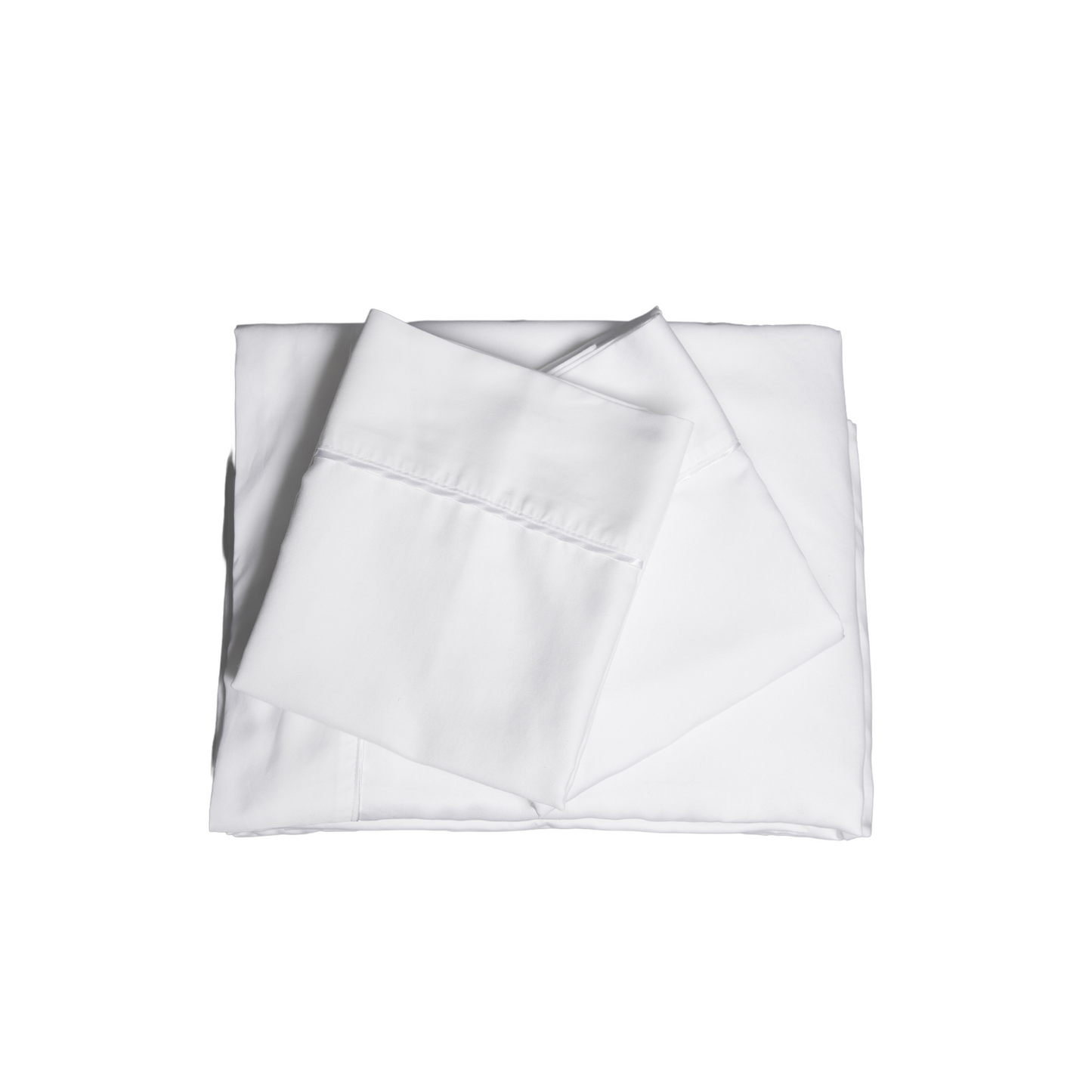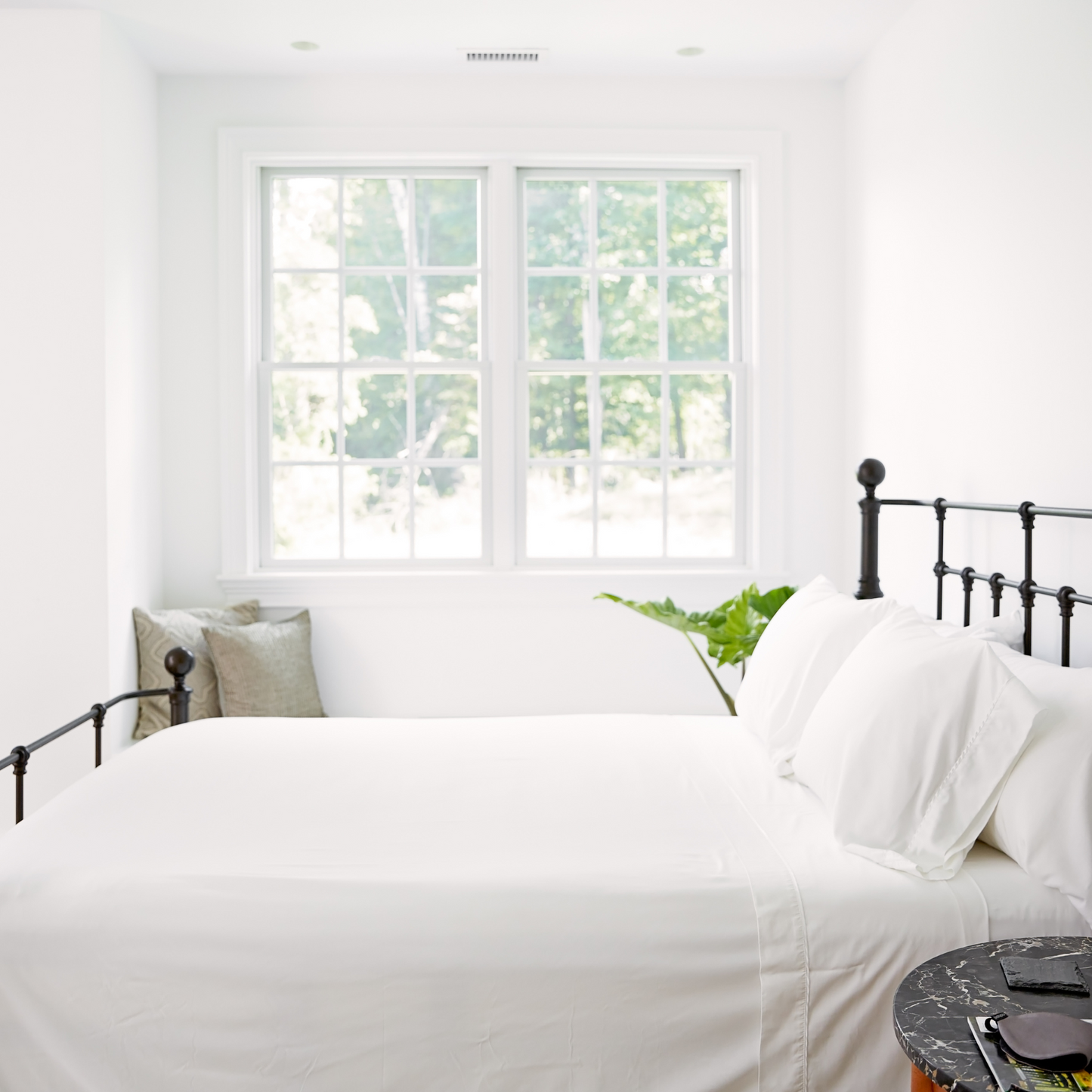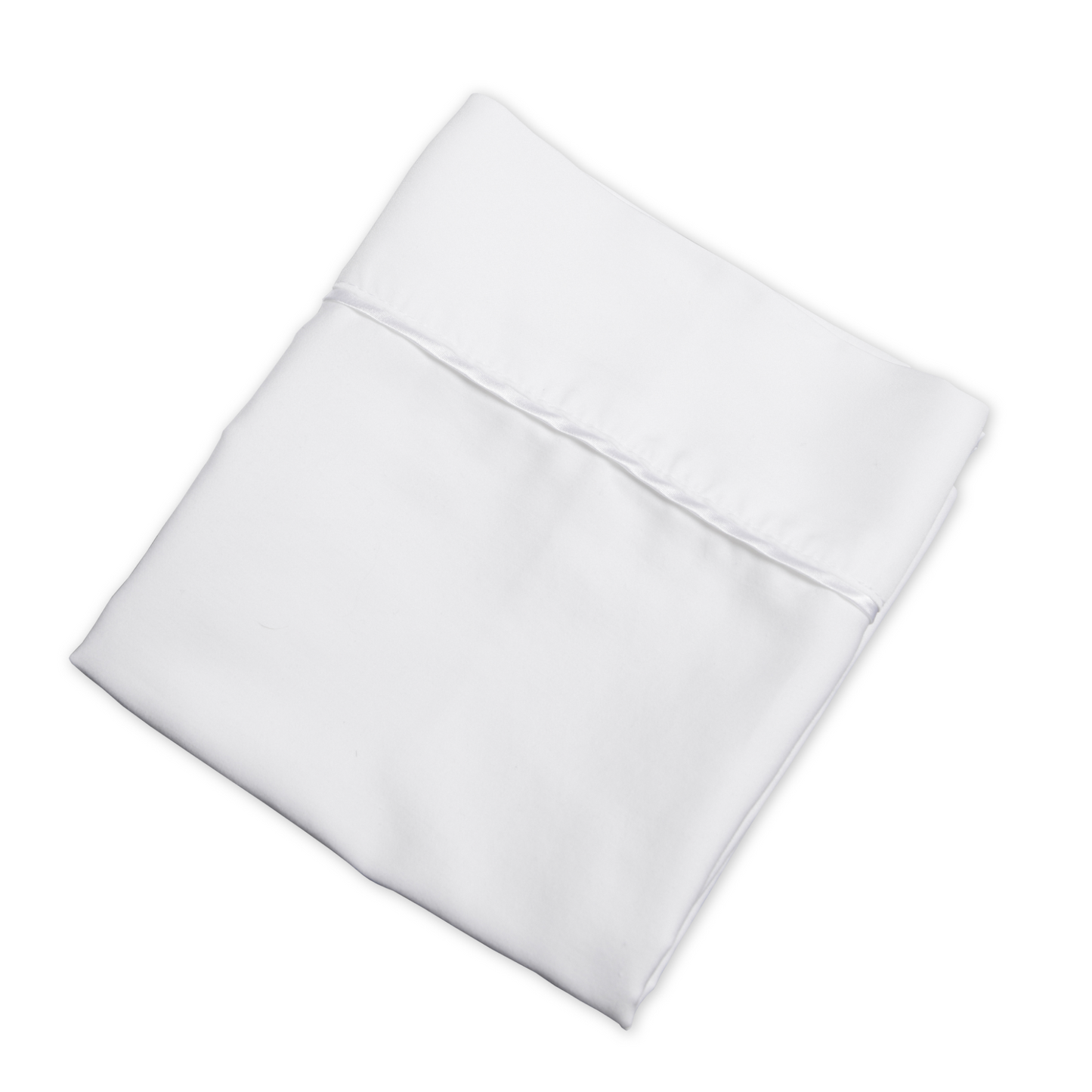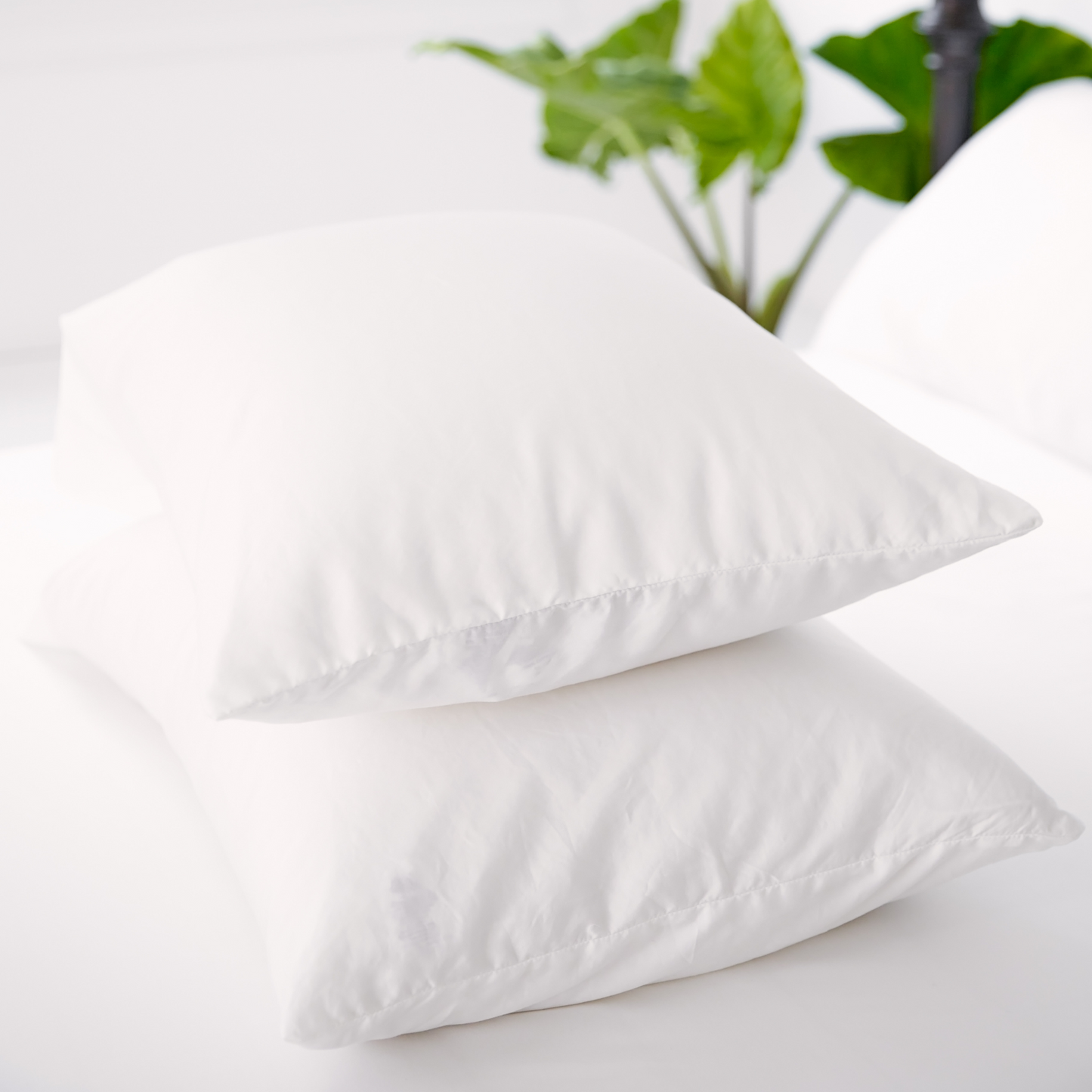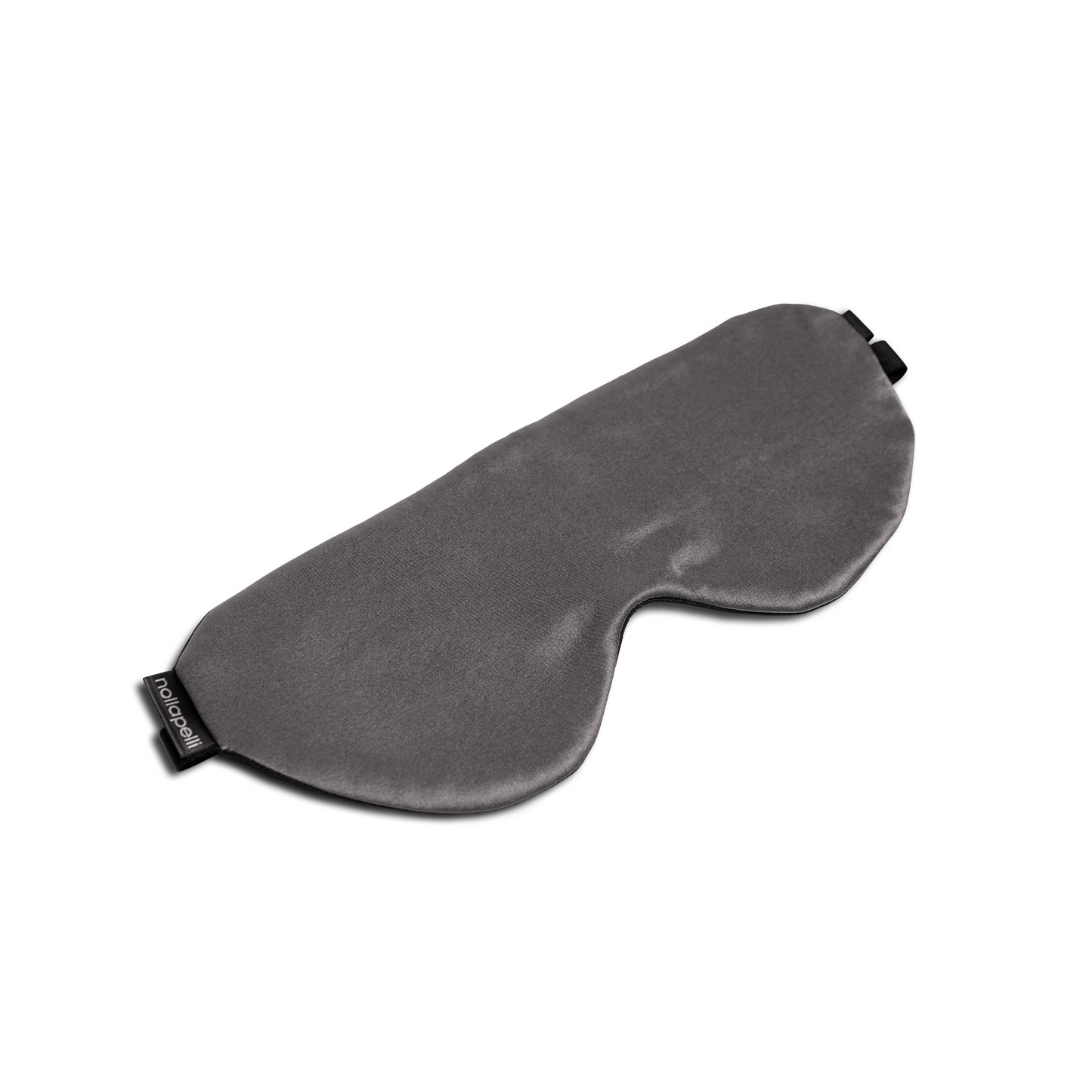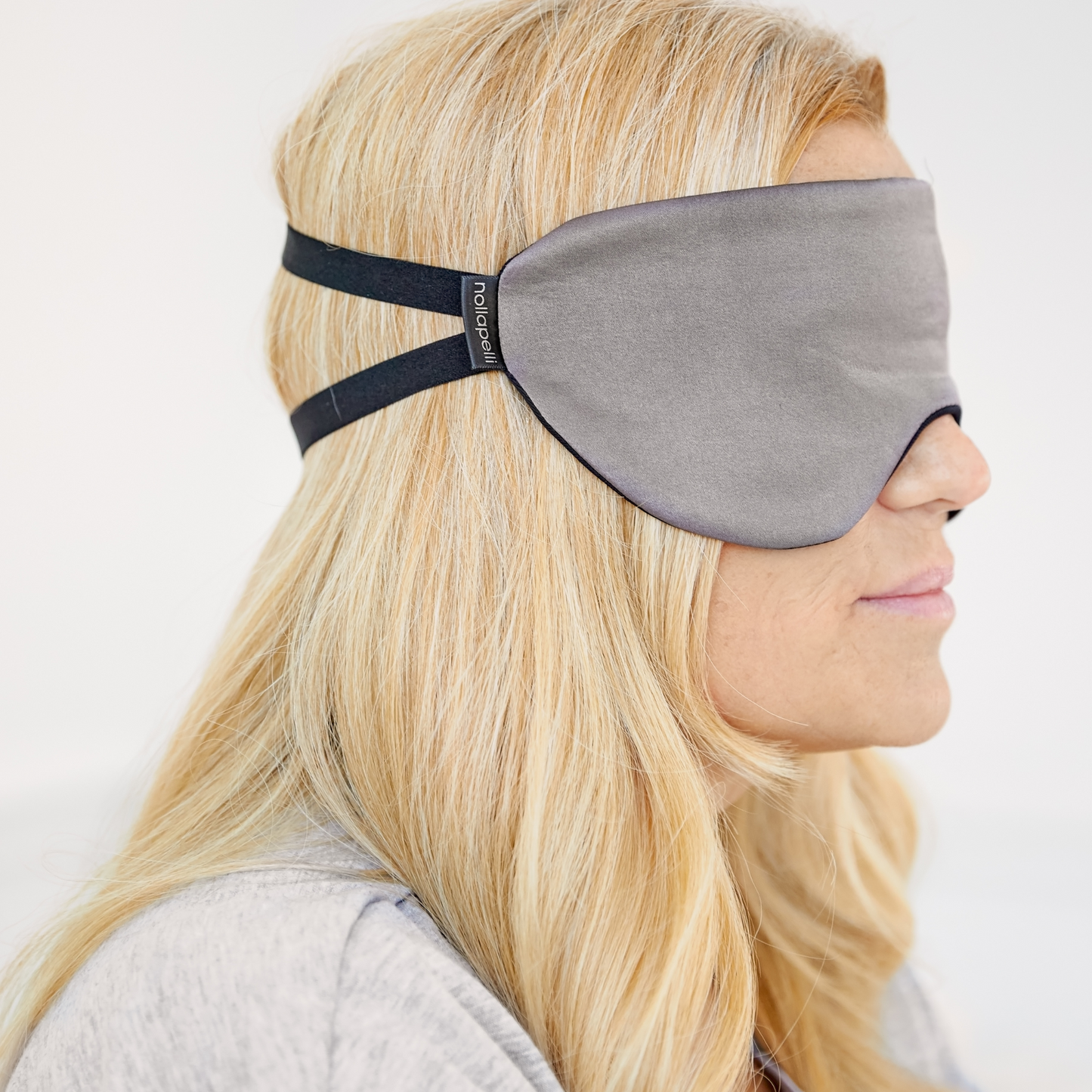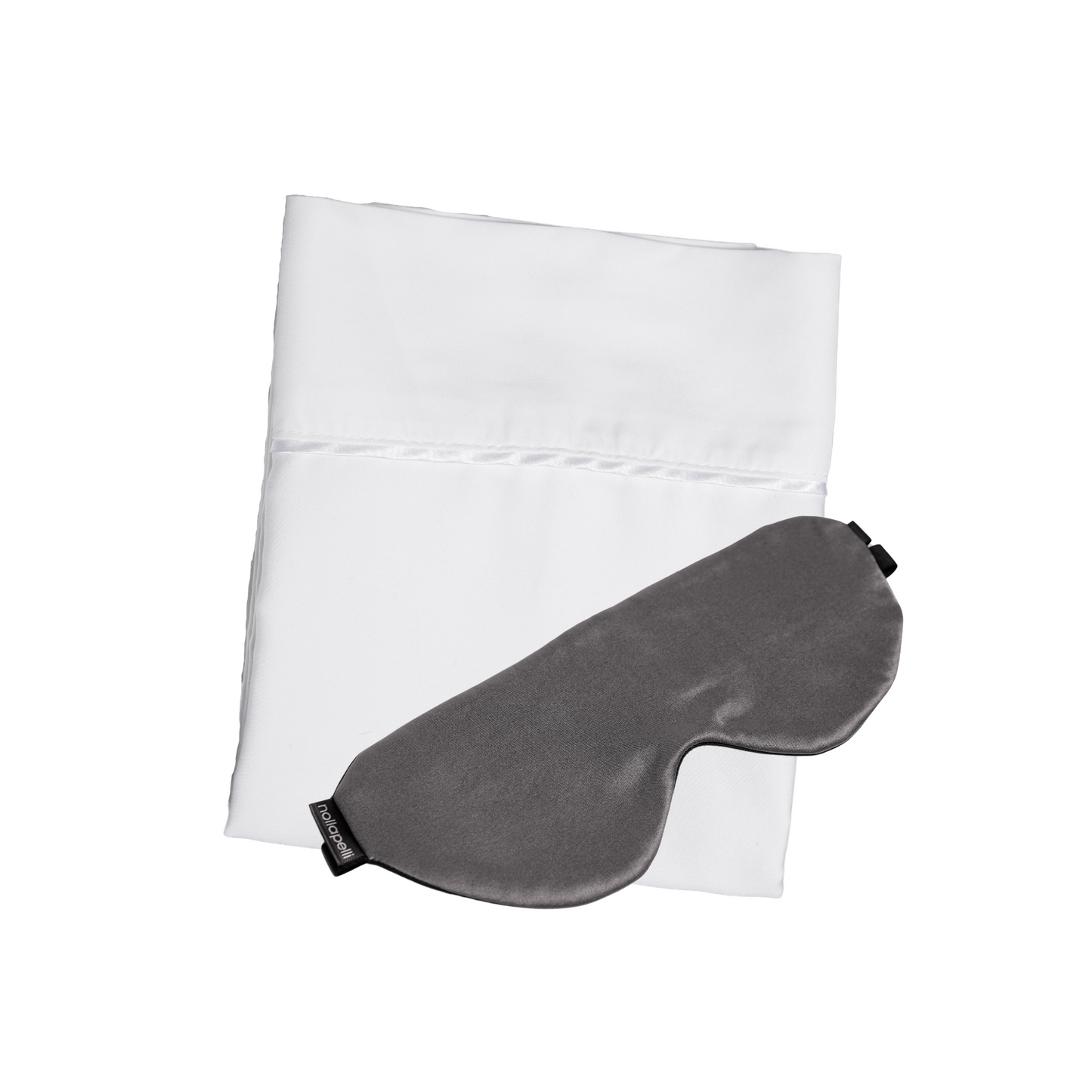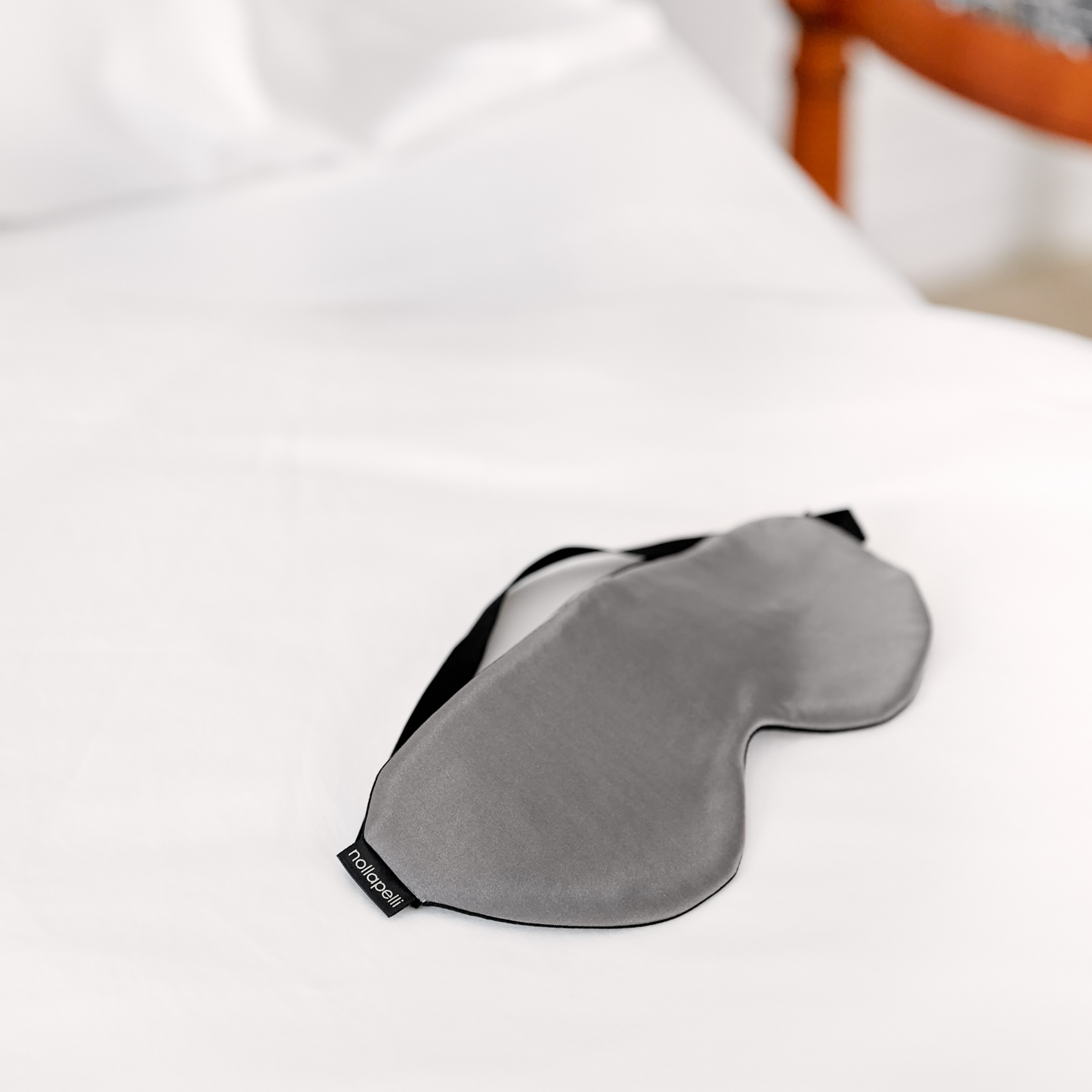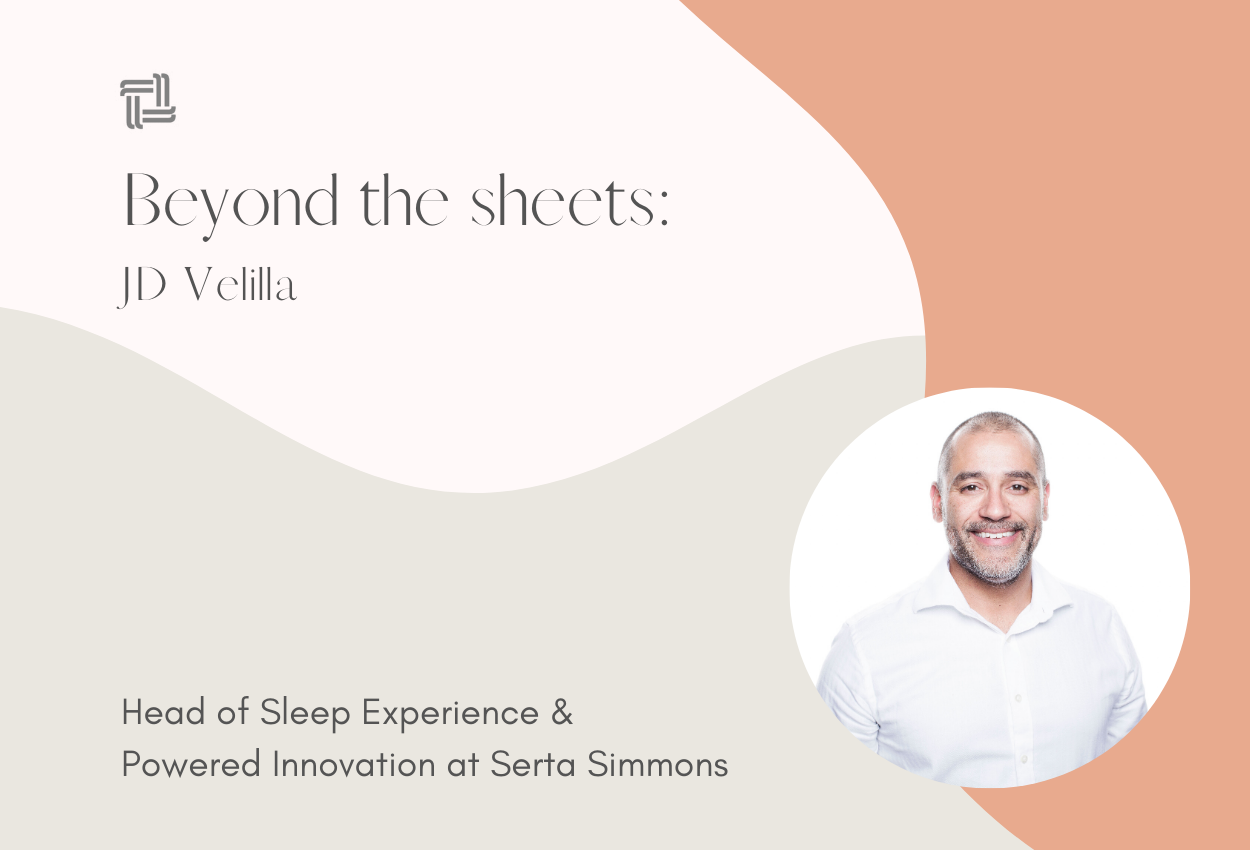
Beyond the Sheets is a monthly series where we share the health and wellness journeys of fellow wellness disruptors; those, like our founder Allison, forging innovation around sleep, skincare, and overall well-being. This edition features JD Velilla.
We've never been more excited to sleep than after listening to JD Velilla, Head of Sleep Experience & Powered Innovation at Serta Simmons. We talk about where we, as a society and as individuals, get sleep and wellness wrong, the humanness behind sleep, and the most specific nighttime routine we have ever heard. Enjoy your time with JD.
Jessa (Nollapelli): How would you define an ideal sleep experience?
JD: For me, it really involves how sleep is so unique to each of us, right? What is required for my sleep is as unique as my personality. My whole focus is on a holistic approach to designing the ideal sleep experience, an experience that’s extremely unique and individualized to the person using our products.
Jessa: How did you fall into this world of sleep science?
JD: My background is in electronics. This was almost four years ago, the company [Serta Simmons] was trying to transition themselves from a mattress company to a sleep company, and they were looking at different technologies and one of them involved the ability to track sleep.
What blew me away was the technology that goes into the mattresses. I saw a mattress company, the largest in North America, I saw that they wanted to move into the tech space which is my bread and butter, and it afforded me the opportunity to sponsor research at Georgia Tech, Dartmouth and different colleges, where I work with sleep scientists and researchers.
Jessa: What prompted Serta Simmons to make that transition?
JD: You are talking about tech in a bed and I think there was a bigger push to go beyond that mindset. It’s not about the mattress, it’s about you, it’s about your sleep health, your sleep hygiene and ultimately your recovery throughout the night.
Jessa: Do you think their move paralleled an increasing trend to a holistic approach to wellness?
JD: I think it plays in there for sure. Here is what I’ll say about wellness. This is where I think a lot of people get it wrong. They think sleep is part of that story, and it’s not, it’s the foundation of the story. You don’t get wellness without proper sleep. You can diet all you want, you can run marathons all you want, but if you are not sleeping well, you are not optimizing your performance and you are not at your best. It’s as simple as that.
Jessa: Where do people fall short in sleep?
JD: The first one, and this is the biggest one. No one is ever taught properly how to sleep. Think about it, anybody with a newborn child…
Jessa: That is me right now!
JD: Were you taught, did the doctors teach you how to get your baby to sleep?
Jessa: No.
JD: You are relying on baby books; you are relying on what your mother and your grandmother may have done. All of this is likely not the best knowledge. The truth is, I can coach you and give you tips that sound so common sense, but you would never think of them on your own because you just don’t have that knowledge base. That’s setting the tone. Because what you teach them as far as how they sleep goes with them the rest of their life.
Now let’s think about us as adults trying to make a course correction. Now it gets really interesting. We are getting more in tune with our health as we get older. But there are two things working against us: habits and behavior. The best way to make the most improvement on your sleep is to go to bed at the same time and wake up at the same time every day of the week. How many people do you think are regimented about that?
Jessa: Not many. Are you?
JD: Oh yes, I take it seriously. Think about you in your normal life. Do you want to wake up at 6:30 in the morning every day of the week, including your weekends?
Jessa: Probably not.
JD: Probably not because in your mind you want to sleep in and gain extra sleep. This is also interesting because there is no such thing. There is no sleeping longer to make up for sleep. The brain doesn’t work that way. If you are sleep deprived, there is no way for you to make that time back up. Sleeping in on the weekends is actually doing more of an injustice to you than anything.
Jessa: When you miss sleep at night, how would you “course correct?”
JD: Last night I flew back to Phoenix from San Diego. Not only am I dealing with the time change, by the time I got to my hotel, ironed my clothes, and actually laid down in bed, it was midnight. I go to bed at 9:30 pm every night and wake up at 5:30 am. I shifted my time back to 7:00 am to give myself another hour and a half of sleep, which is another sleep cycle. But, any way you look at it, I lost a sleep cycle.
Jessa: You can’t gain that sleep back?
JD: Today there is nothing I can do to regain that sleep. What I can do is focus on recovery periods. Around lunchtime, I am going to sit outside for maybe fifteen minutes and really soak in that vitamin D, which makes you feel rejuvenated. I could also take a 26-minute nap. Those are all things to help you recover and power you through the rest of the day, but that sleep is gone. The best thing I can do is go back to my regular schedule tonight and get the proper sleep I need.
Jessa: Why 26 minutes for a nap?
JD: From a scientific standpoint, that is a number some people have settled on. Any way you look at it, you don’t want to nap for longer than 45 minutes, ideally 30 minutes. And, you don’t want to nap later in the day.
Jessa: Any tips for expert napping?
JD: There are misconceptions about that [napping]. I am not saying you need to lie down and fall asleep. You may find that, if you are not a napper, it’s hard for you to do it. At first, you are going to wind down, you’re going to lay there, you may not fall asleep at all. After a while of doing it consecutively, you will nap. I guarantee it. You will teach yourself to be asleep in five minutes. Think about it like a meditation period. If you’re not good at napping, you will just lay there, but you will feel refreshed because you just powered down a little bit.
Jessa: You are energetic when it comes to explaining sleep.
JD: Well, let me tell you why. I’ve been a poor sleeper my whole life. And the more I learned, the more I look back to my past and I realize all the things my parents did wrong, I did wrong, our society did wrong and still does wrong to this day. And now it’s insane how well I sleep. I try different sleep tracking devices and most of the time I am in the upper 1%.
Jessa: You must be the go-to-guy at Serta Simmons for sleep advice.
JD: I talk about sleep all the time. I talk about my story. I talk about what I’ve done, how I’ve hacked my sleep, and what works for me. Once you hear me speak and tease these things out, it raises the awareness. It’s really up to you to do what we all should be doing which is experimenting. There are so many tools we can use.
If we bring that back to Nollapelli sheets, I have tested a ton of sheets. From a perception standpoint, they matter. They feel cooler, they are smoother to touch, there’s less friction. It’s another tool to help you sleep better. A lot of people think 1000 count thread Egyptian cotton sheets are perfect. But more threads mean less breathability.
Jessa: Even with our science-based sheets, it is difficult to challenge the thread count narrative.
JD: I’ve learned humans are not built to consume data. Also, from a technical standpoint, engineers are super smart. They get stuff at a level that is different. How do you convince another person? The truth is that we are storytellers. Humans are storytellers. That’s what we have to do, we have to tell the story. The technology actually has to be the least important thing.
Jessa: You said “society gets it wrong” when it comes to sleep. Can you explain further?
JD: Well there are two things. Let’s start with the easiest one – kids going to high school. When you are in high school, you require more sleep, but what do we do to these kids? We make them wake up at 5:30 am to start school super early. They go to school, maybe they do sports, they have a social life because they are at that age. Essentially what’s happening is they are sleep deprived every single day. Instead of getting ten hours of sleep, they are getting around six or seven hours. You can say they are texting, they are playing video games, etc., but those are all things that can be adjusted. What can’t be adjusted is school start times. They should be starting later in the day. Their whole schedule should be curated around getting them to sleep the best. If they sleep well, they perform better, their tests scores go up, they are more manageable.
Jessa: And what’s the second one?
JD: Have you heard of chronotypes? You are either a morning person or a night person. We are pre-wired that way. These are all things we don’t focus on because we don’t talk about sleep anymore. Same thing with naptime. Why do only kids in preschool and kindergarten get naps? We should get naps too!
Jessa: I hear that!
JD: There should be sleep pods. Hey, go take a 30-minute nap, you will perform better.
Jessa: This is the best TED Talk I’ve listened to.
JD: [chuckles]
Jessa: Tell me about your nighttime sleepcare routine.
JD: I basically have my own turndown service. At 9 pm, the smart thermostats drop the temperature in the house a couple of degrees. When we go to sleep, it’s actually one of the only times our core temperature drops, so normally 98.6 degrees, but when we go to sleep it drops about two to three degrees. I am helping that transition to cold. All of the lights in the common areas drop to a dim setting. The lights in the main area, where we are watching tv, turn to an amber glow, simulating the sunset. I go into my bedroom and pull the sheets and covers down and turn the fan on. You get the cold air from the AC; you’ve got the fan going so I get into a nice cold bed. Around 9:15 pm, I have two noise-masking machines that are on opposites sides of the bed and they turn on to project the noise blanket over the mattress, so when I’m in the mattress all I hear is white noise. At 9:30 pm, I go to bed.
Jessa: What is one thing you do for your sleep every day?
JD: The routine.
Find out how you can elevate your sleep routine on our soft sheets and pillowcases!

